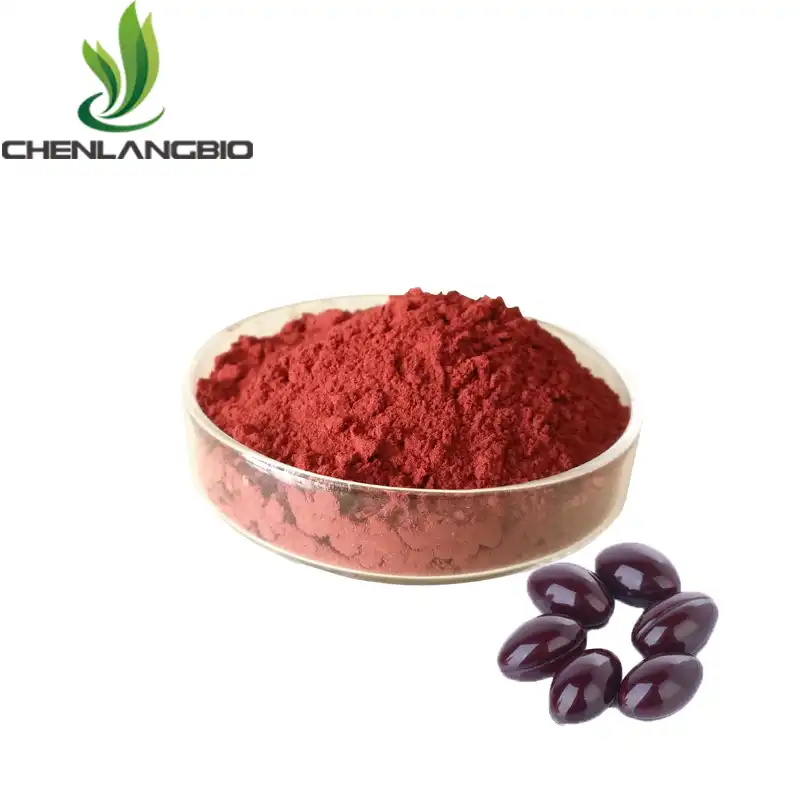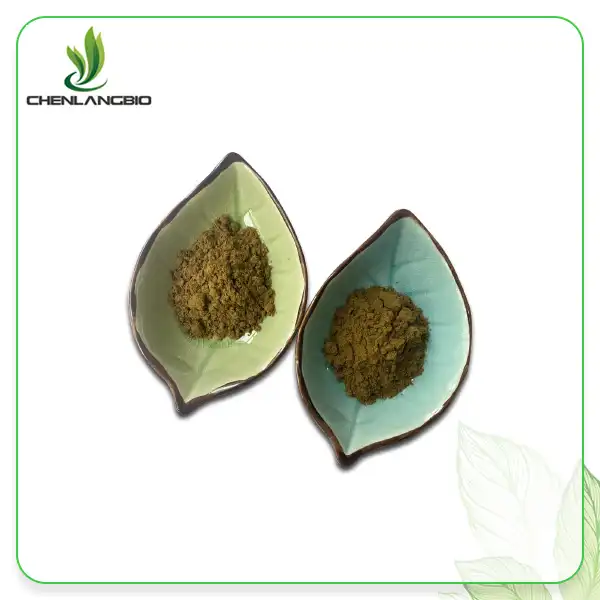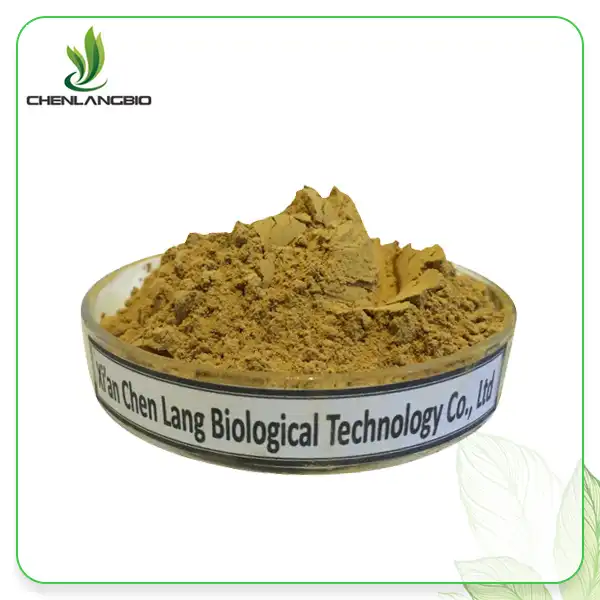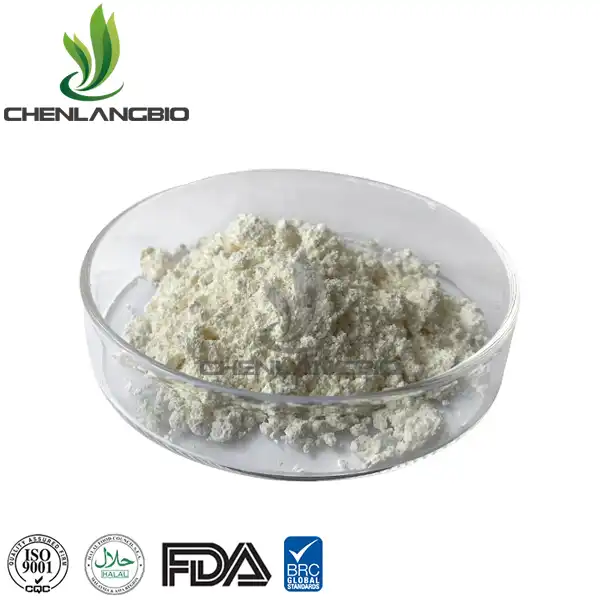Does Bakuchiol Build Collagen
2024-08-08 13:56:53
In the cosmetics business, bakuchiol—a natural chemical derived from the seeds and leaves of the Psoralea corylifolia plant—is gaining popularity as a milder substitute for retinol. One of bakuchiol's major benefits is often mentioned as being its ability to enhance the formation of collagen. Collagen is an essential protein that keeps the skin tight, supple, and structural. We'll discover in this blog whether bakuchiol genuinely promotes the production of collagen and how it compares to other well-known skincare components.
How Does Bakuchiol Stimulate Collagen Production?
Bakuchiol is well known for its anti-aging qualities, which are frequently attributed to its capacity to increase the formation of collagen. But how precisely does it function?
1. Bakuchiol's Mechanism of Action
Bakuchiol functions by interfering with a number of the skin's metabolic mechanisms. It turns on genes that control the synthesis of collagen and other proteins vital to healthy skin. Contrary to retinol, which may be irritating and abrasive, bakuchiol stimulates collagen more subtly without sacrificing the integrity of the skin.
2. Clinical Studies and Research
The efficiency of bakuchiol in increasing the formation of collagen has been shown in several clinical investigations.According to research that was published in the British Journal of Dermatology, retinol and bakuchiol both work well to reduce the appearance of fine lines and wrinkles, although retinol causes more discomfort.These investigations demonstrate the potential of bakuchiol as a collagen-stimulating agent.
3. Comparison with Retinol
Retinol, a vitamin A derivative, is well recognized to boost collagen.However, it might also have unfavorable effects including peeling, dryness, and redness.
Because it provides comparable advantages with fewer side effects, bebacchiol is a preferable option for persons with sensitive skin or those who cannot handle retinol.
4. Antioxidant Properties
Bakuchiol also possesses strong antioxidant properties, which help protect the skin from oxidative stress and free radical damage. This protective effect further supports collagen production and overall skin health by preventing collagen degradation.
5. User Experiences and Testimonials
Many users report significant improvements in their skin's texture, firmness, and elasticity after incorporating bakuchiol into their skincare routine. These anecdotal experiences, combined with scientific evidence, support the claim that bakuchiol can effectively stimulate collagen production.
Is Bakuchiol as Effective as Retinol for Collagen Synthesis?
Retinol has long been the gold standard in anti-aging skincare, but how does bakuchiol compare in terms of collagen synthesis?
1. Efficacy Comparison
Clinical studies have shown that bakuchiol is as effective as retinol in promoting collagen production and reducing signs of aging. Both ingredients stimulate collagen synthesis, but bakuchiol does so without the irritating side effects commonly associated with retinol.
2. Skin Tolerance
One of the main advantages of bakuchiol over retinol is its gentleness. Retinol can cause dryness, peeling, and increased sensitivity to sunlight, which may deter some users. Bakuchiol, on the other hand, is better tolerated by most skin types, including sensitive skin, making it a more accessible option for a broader audience.
3. Long-Term Use
Both bakuchiol and retinol can be used long-term, but bakuchiol's gentler nature allows for continuous use without the need for frequent breaks. This can lead to more consistent and sustained collagen production over time.
4. Combination Therapy
For those who can tolerate retinol, combining it with bakuchiol can provide enhanced benefits. Bakuchiol can help mitigate some of the side effects of retinol while boosting its collagen-stimulating effects, offering a synergistic approach to anti-aging skincare.
5. User Preferences
Ultimately, the choice between bakuchiol and retinol comes down to individual skin types and preferences. Users who seek powerful anti-aging effects without the risk of significant side effects may prefer bakuchiol, while those who can tolerate retinol’s side effects may benefit from its more intensive action.
What Are the Other Benefits of Bakuchiol Besides Collagen Production?
Bakuchiol offers a range of benefits beyond collagen stimulation, making it a versatile ingredient in skincare.
1. Anti-Inflammatory Properties
Bakuchiol has notable anti-inflammatory properties, which help reduce redness and soothe irritated skin. This makes it beneficial for conditions like acne and rosacea, where inflammation plays a significant role.
2. Antioxidant Effects
The antioxidant properties of bakuchiol protect the skin from free radical damage, which can lead to premature aging. By neutralizing free radicals, bakuchiol helps maintain youthful and healthy skin.
3. Acne Treatment
Bakuchiol is non-comedogenic, meaning it does not clog pores, making it suitable for acne-prone skin. Its antibacterial properties help reduce acne-causing bacteria, while its anti-inflammatory effects diminish the severity of breakouts.
4. Skin Tone and Texture Improvement
Regular use of bakuchiol can lead to improved skin tone and texture. It helps reduce hyperpigmentation and dark spots, resulting in a more even complexion.
5. Hydration and Moisture Retention
Bakuchiol helps in maintaining skin hydration and moisture levels. It works well with other hydrating ingredients, such as hyaluronic acid, to keep the skin plump and hydrated.
Are There Any Side Effects of Using Bakuchiol?
While bakuchiol is generally well-tolerated, it's important to be aware of potential side effects and how to mitigate them.
1. Mild Irritation
Some users may experience mild irritation when first using bakuchiol, especially if they have sensitive skin. This can include redness, itching, or a slight stinging sensation. Starting with a lower concentration and gradually increasing it can help minimize these effects.
2. Patch Testing
Conducting a patch test before full application is advisable, particularly for those with sensitive or reactive skin. Apply a small amount of bakuchiol to a discreet area of skin and monitor for any adverse reactions over 24-48 hours.
3. Interaction with Other Skincare Ingredients
Although buchuchuile can be used with other ingredients in skincare products, you should be mindful of potential interactions. When bakuchiol is used in combination with strong exfoliants or large amounts of active ingredients, there is a greater chance of pain.
4. Allergic Reactions
Although rare, allergic reactions to bakuchiol can occur. Signs of an allergic reaction include redness, swelling, itching, or a rash. If any of these symptoms occur, discontinue use and consult a healthcare professional.
5. Consulting a Dermatologist
If you are unsure about how your skin will react to bakuchiol or have a history of allergic reactions to skincare products, consulting a dermatologist is recommended. They can provide personalized advice and suggest alternative products if necessary.
How to Incorporate Bakuchiol into Your Skincare Routine?
Incorporating bakuchiol into your skincare routine can provide numerous benefits. Here are some tips on how to do it effectively.
1. Starting Slowly
Introduce bakuchiol gradually into your routine. Begin with a lower concentration and use it every other day to allow your skin to adjust. Increase frequency as your skin builds tolerance.
2. Pairing with Moisturizers
Using a good moisturizer is essential to maintain hydration and support the skin barrier. Look for products with hydrating ingredients like hyaluronic acid, glycerin, and ceramides to pair with bakuchiol.
3. Avoiding Harsh Ingredients
Bauchuchiol should not be used with other substances that might irritate skin, such as powerful exfoliants or AHA and BHA concentrations. This lessens the possibility of discomfort and guarantees that bakuchiol will not have negative side effects while offering its advantages.
4. Sun Protection
Even though bakuchiol does not increase your sensitivity to the sun, you should still use sunscreen for the overall health of your skin. You may lessen your risk of being burned and get better results from your skincare routine by protecting your skin from UV radiation.This information appears overly automated.
5. Listening to Your Skin
Pay attention to how your skin responds to bakuchiol. If you notice any signs of irritation or discomfort, adjust the frequency of use or consult a dermatologist for personalized advice.
Conclusion
Bakuchiol is a skincare ingredient that can be used in a variety of ways and works well. It has many benefits, including making more collagen. It's gentle and good for a lot of things, so it's a good addition to any skincare routine. You can have skin that looks younger and healthier if you know how to use bakuchiol correctly and are aware of potential side effects. Contact us at admin@chenlangbio.com for product recommendations or advice that is more tailored to your needs.
References
Healthline | What Is Bakuchiol and Should You Use It in Your Skin-Care Routine?
Dermstore | Bakuchiol: The Natural Alternative to Retinol.
Harper’s Bazaar | Bakuchiol: The Plant-Based Retinol Alternative.
Byrdie | Everything You Need to Know About Bakuchiol.
Allure | Bakuchiol Is the New Retinol Alternative.
The Dermatology Review | Bakuchiol Benefits for Skin.
Good Housekeeping | Bakuchiol vs. Retinol: What’s the Difference?
Marie Claire | Bakuchiol: The Gentle Retinol Alternative Your Skin Will Love.
Glamour | The Benefits of Bakuchiol for Your Skin.
Vogue | Bakuchiol: The New Wonder Ingredient in Skincare.
Send Inquiry
Related Industry Knowledge
- Why Pro-Xylane Powder is Trending in Skincare
- Pure Pomegranate Powder: Top Health Benefits
- How Water Soluble Coenzyme Q10 Boosts Energy
- Who Should Avoid Hops
- What is EGCG Green Tea Extract
- Why is Green Tea Extract Good for You
- Can I Use Retinol and Bakuchiol Together
- Deoxyarbutin Powder Manufacturer
- Cosmetics Ingredient INCI Lupinus Albus Extract Supplier
- Argireline Acetyl Hexapeptide 8 Anti-Wrinkle









